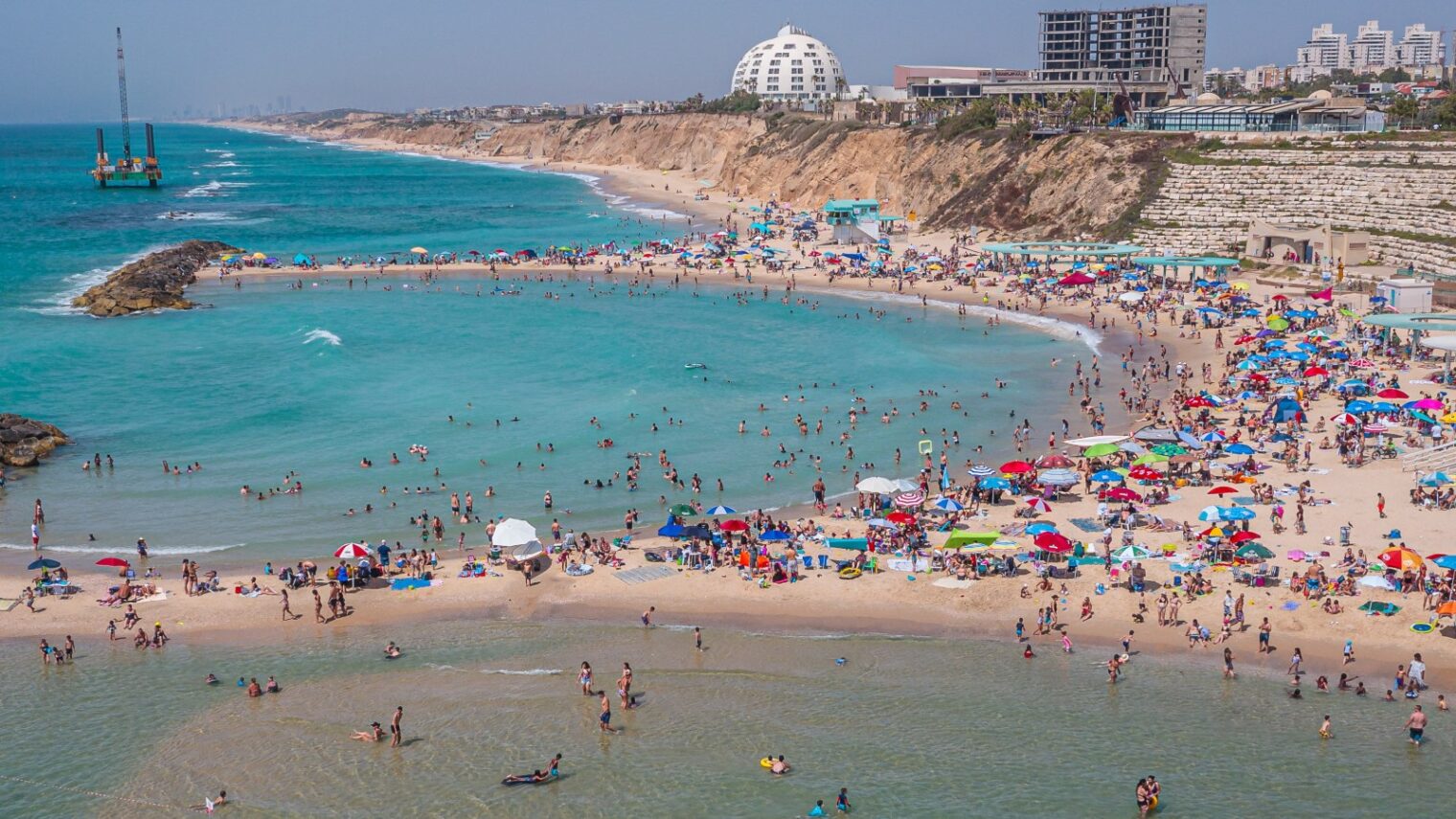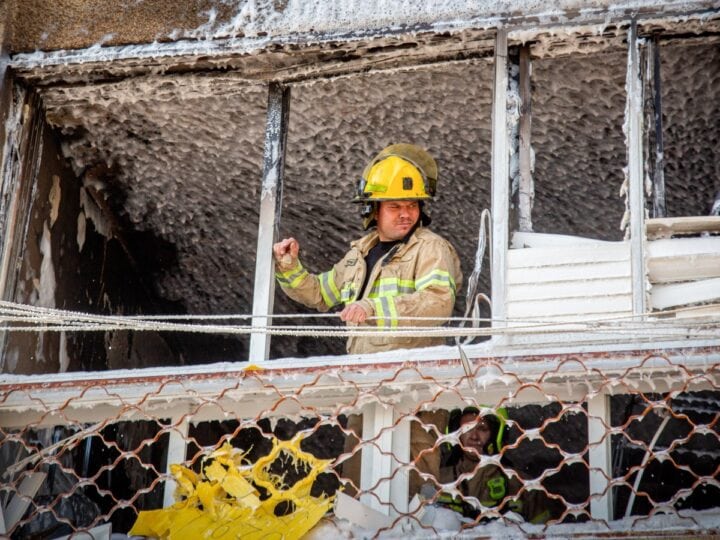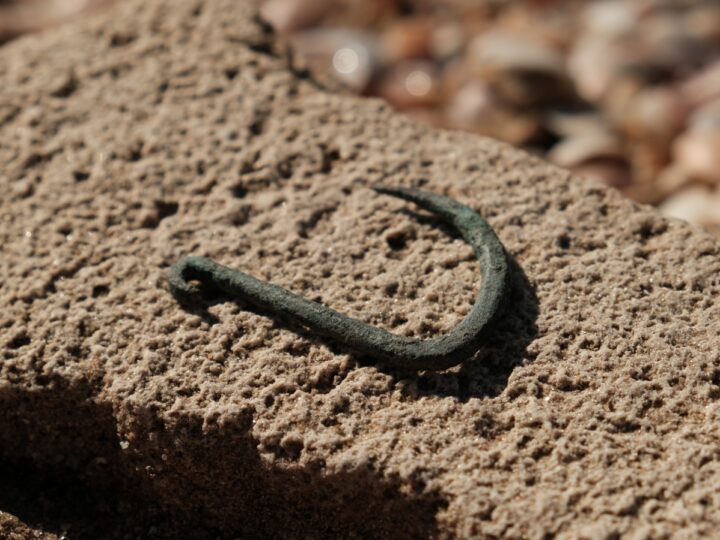Debbie Gross Steinberg heard the news while driving home to Ashkelon from her job in Jerusalem on July 13: Ashkelon leads Israel in new apartment sales.
Between February and April alone, 951 new homes were sold in this coastal city of about 150,000 residents, whose population has grown 25% over the past decade.
Here’s why this is surprising: Ashkelon lies six miles north of the Gaza Strip. For 11 days in May, the city came under heavy missile barrage, sustaining some direct hits and Israel’s first two deaths in this latest flareup of a long-simmering conflict.
But Steinberg wasn’t surprised. The prospect of having to sleep in the apartment’s reinforced “safe room” every now and then did not deter her and her husband, Marc, from moving from Jerusalem to Ashkelon a year and a half ago.

“The truth is the missiles can hit anywhere. That’s the way we looked at it,” says Steinberg, director of Tahel, a national crisis center for religious women and children suffering sexual abuse and domestic violence.
She grew up in New England, and ever since moving to Israel in 1978 she dreamed of living on the beach. As Marc neared retirement, they researched coastal cities. They discovered that Ashkelon is affordable and within reasonable driving distance from her workplace.
“The nice thing about Ashkelon is that it’s very provincial,” she tells ISRAEL21c. “You know the store owners and the people. There are good restaurants and shopping, a new marina, and activities for older people. The weather is lovely, and the pace of life is slower than in Jerusalem or Tel Aviv.”
Steinberg begins relaxing as she gets closer to Ashkelon after a day’s work, she says. “I come home and go out to the porch with a glass of wine and see the beautiful beach.”

Twice as nice for half the price

“One of the slogans I use is ‘Ashkelon is twice as nice for half the price,’ and it really is,” says local real-estate broker Motti Ben Yitzhack, aka Mr. Ashkelon.
“The price of buying property in Ashkelon is significantly lower than anywhere else on the coastline, including Tel Aviv, Ashdod, Herzliya, Caesarea and Netanya.”
Originally from London, Ben Yitzhack deals mainly with English-speaking clients from Israel and abroad, collectively referred to as “Anglos.”
“Anglos are particularly attracted to the many high-rise seafront developments that have opened in the past three or four years – especially those who wish to come here to retire and like to look at the sea when they open their eyes in the morning.”
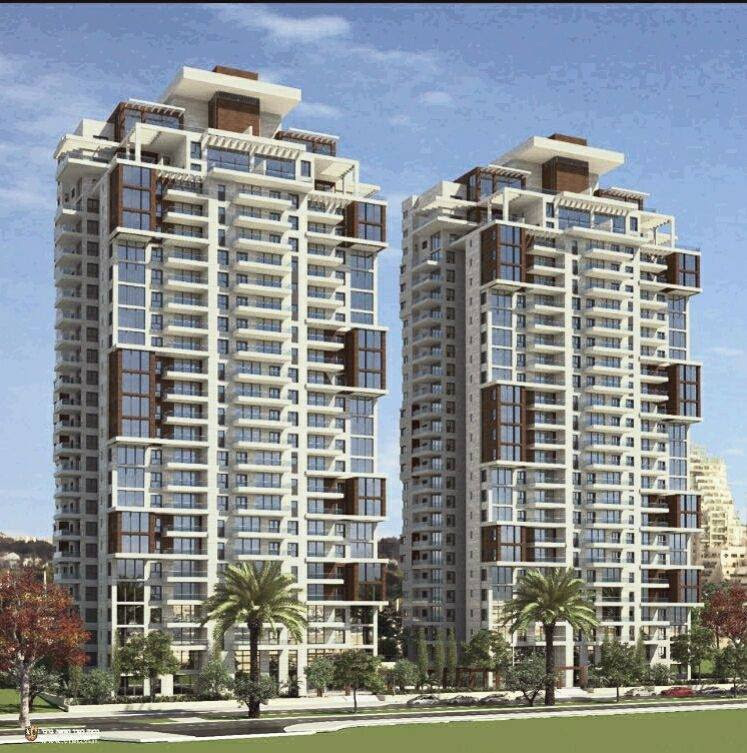
The municipality recently sent Ben Yitzhack to promote the city at synagogues and parlor meetings in New York and New Jersey.
Inevitably, potential customers bring up the issue of Gaza.
“I explain that we do have military conflicts from time to time, and we take all the precautions necessary and get on with our lives — and our lives are usually very peaceful and enjoyable,” he says.
“Street crime is virtually nonexistent in Ashkelon. Other than at times when rockets come over, most people feel safer walking the streets of Ashkelon at night than in New York and New Jersey.”
Ben Yitzhack says the Iron Dome missile defense system first deployed in 2011 has made residents feel more secure.
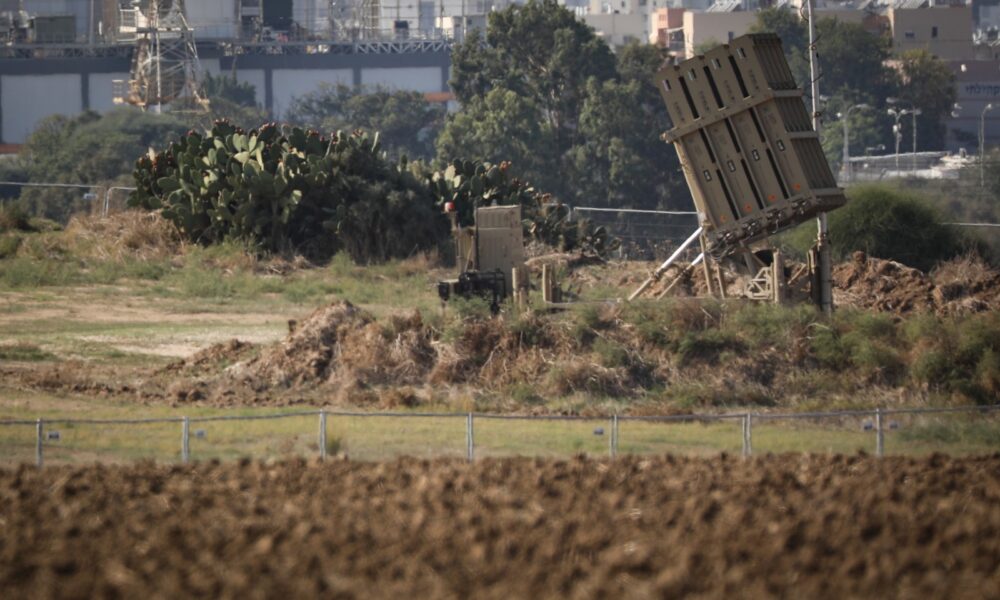
‘An amazing place’
“We were the first area to get the Iron Dome because we have strategic infrastructure including the Electric Corporation, a desalination plant and an oil pipeline,” explains David Zwebner, head of the Ashkelon Properties real-estate agency.
Raised in South Africa – from where the founders of the modern city of Ashkelon immigrated in the early 1950s – Zwebner has lived in Israel since 1966.
“People used to be frightened of Ashkelon because of its proximity to Gaza. But during the skirmishes, people would come from other parts of Israel to help in the South, and they discovered Ashkelon is an amazing place. People realize the Gazans aren’t aiming specifically at Ashkelon, and the way it’s designed as a garden city, there’s almost no damage from the missiles.”
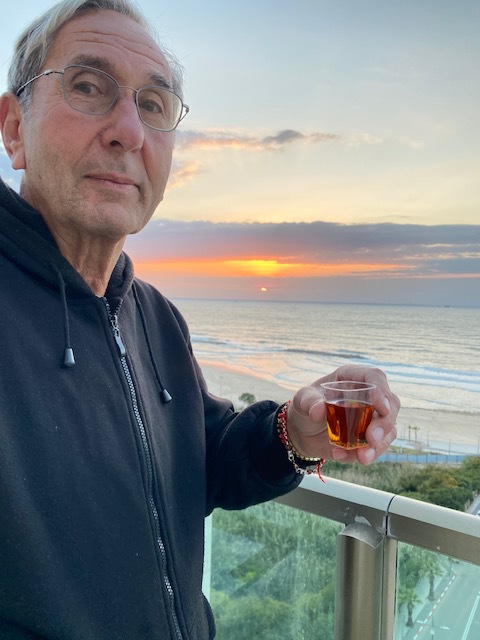
Every apartment Zwebner sells has a sea view. In the last three years, he’s sold 60 apartments. During the 11 days of the recent war, he says, he sold nine apartments.
“People thought maybe prices had dropped [due to the conflict] but they hadn’t. There is increased demand,” says Zwebner. “Since the beginning of the year, I’ve sold an average of five apartments a month.”
His customers are all Anglos, mostly professionals in their 60s. About 70% buy in Ashkelon as a second residence not too far from Jerusalem and central Israel.
“Because of corona, the place has become more popular. People saw that their kids and grandchildren were cooped up, so they decided to buy a cheap place on the beach where everyone can come. It just makes sense,” says Zwebner.
“When people see the properties here, they just ask ‘How much?’ And when they hear the price, they say, ‘Are you serious?’ I invest in every project I sell, so I put my money where my mouth is.”
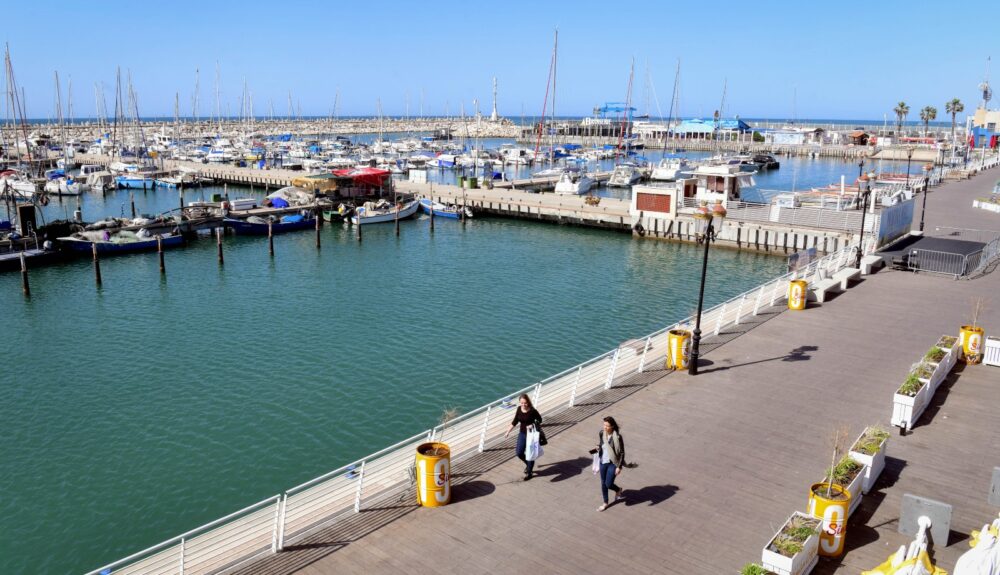
Besides the beach
Seven and a half miles of flat beachfront is the main draw.
But Ashkelon also boasts a sports arena, cultural center, seafront dining and leisure complex, cycling trails, Ashkelon Sea Park with activities such as climbing walls and ziplines, Barzilai Medical Center, and a national archeological park that displays artifacts from the city’s 5,000-year history.
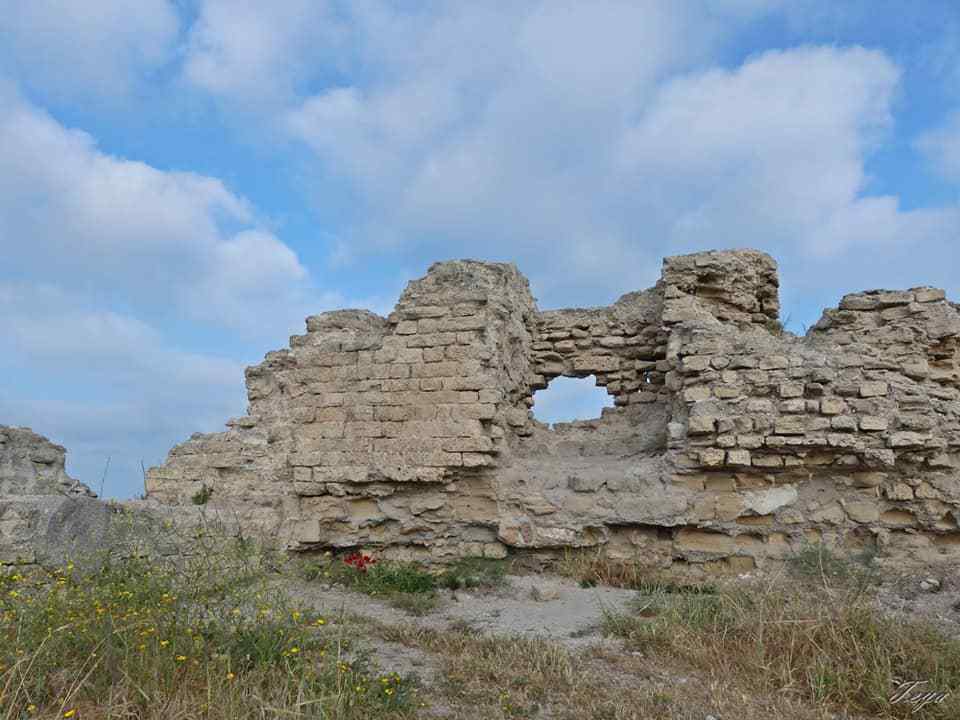
When Patti and Richard Schwartz were planning their move to Israel from Scranton, Pennsylvania, four years ago, Richard was soon to retire. So in addition to scouting out “a place where we’d never see snow and cold ever again,” they searched for a city that offered activities for people their age.
Ashkelon checked all their boxes.
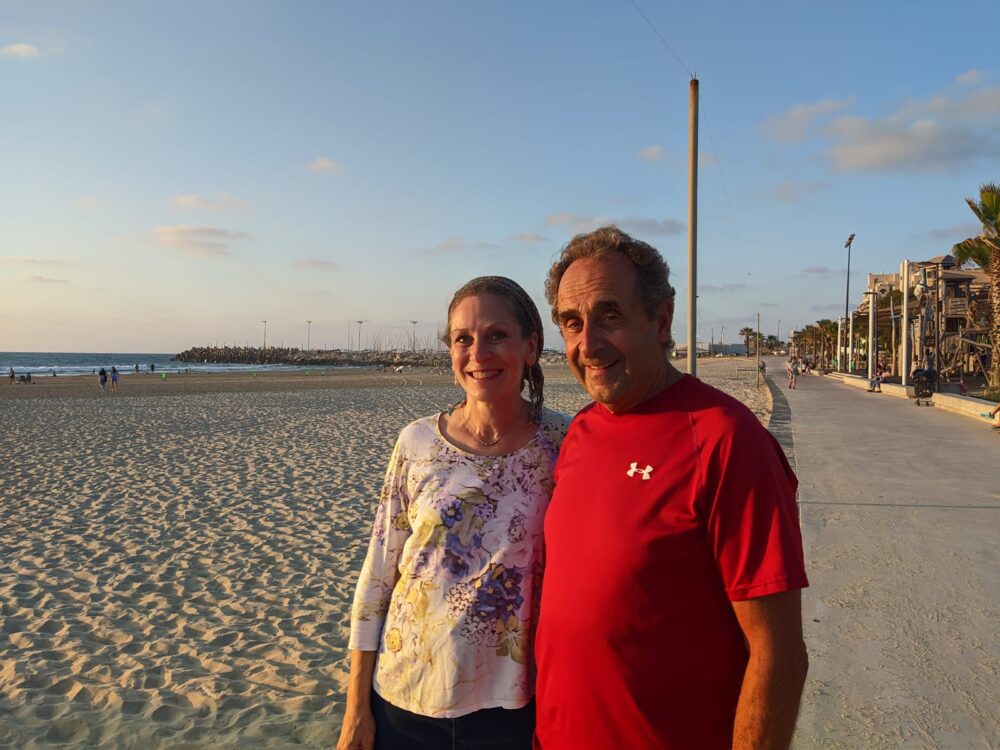
“Here we can hike in the national park every day, if we want to, and we can walk at night anywhere. The beach is magnificent and only a block away,” says Patti Schwartz.
“There are other retired English speakers in Ashkelon. The community is growing constantly, and the people are very nice.”
The first time they heard a siren warning of an incoming missile, they entered their safe room and remained calm, Schwartz says. During more recent incidents, they simply left home and vacationed elsewhere in Israel until things quieted down.
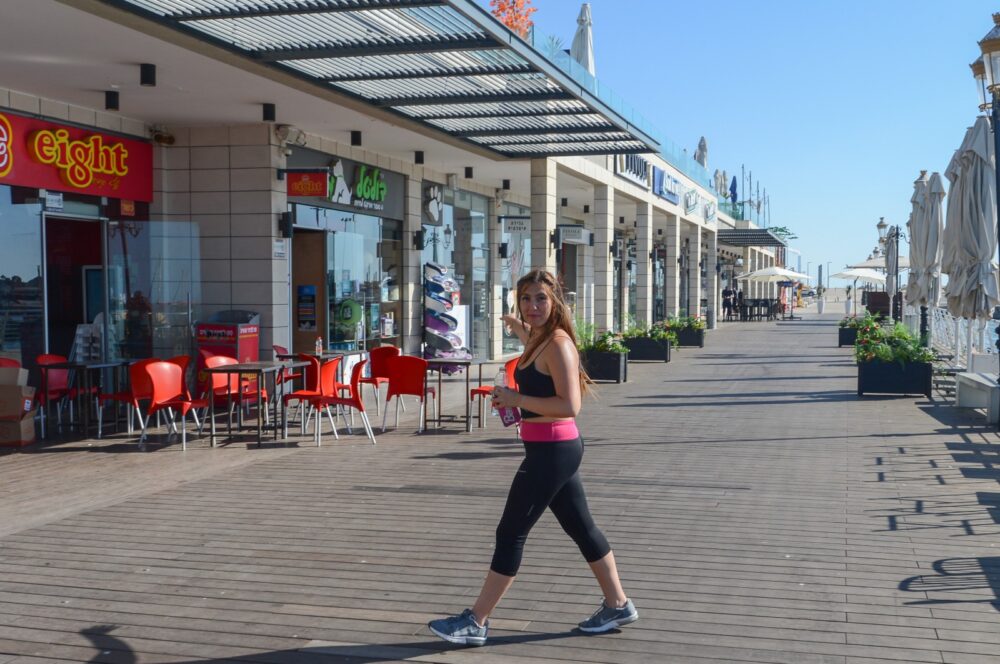
“When conflicts happen,” says Ben Yitzhack, “many Ashkelonim leave the city but when we return, we return to the peace that we always know. Most newcomers to Ashkelon, and those seeking to buy here, understand that the threat is very minimal and that if one wants to live in Israel at all, one has to accept there is a certain risk.”
He reports that after the 11-day May conflict, sales inquiries only increased.
“The mayor was on the news every day and a lot of people started taking note of the city. This turned into inquiries and eventually sales,” Ben Yitzhack says.
“The secret of Ashkelon has been let out and people are coming here in big numbers relative to previously. We are no longer a small community but a large diverse community, ranging from young families to retirees, that did not exist 10 years ago.”




